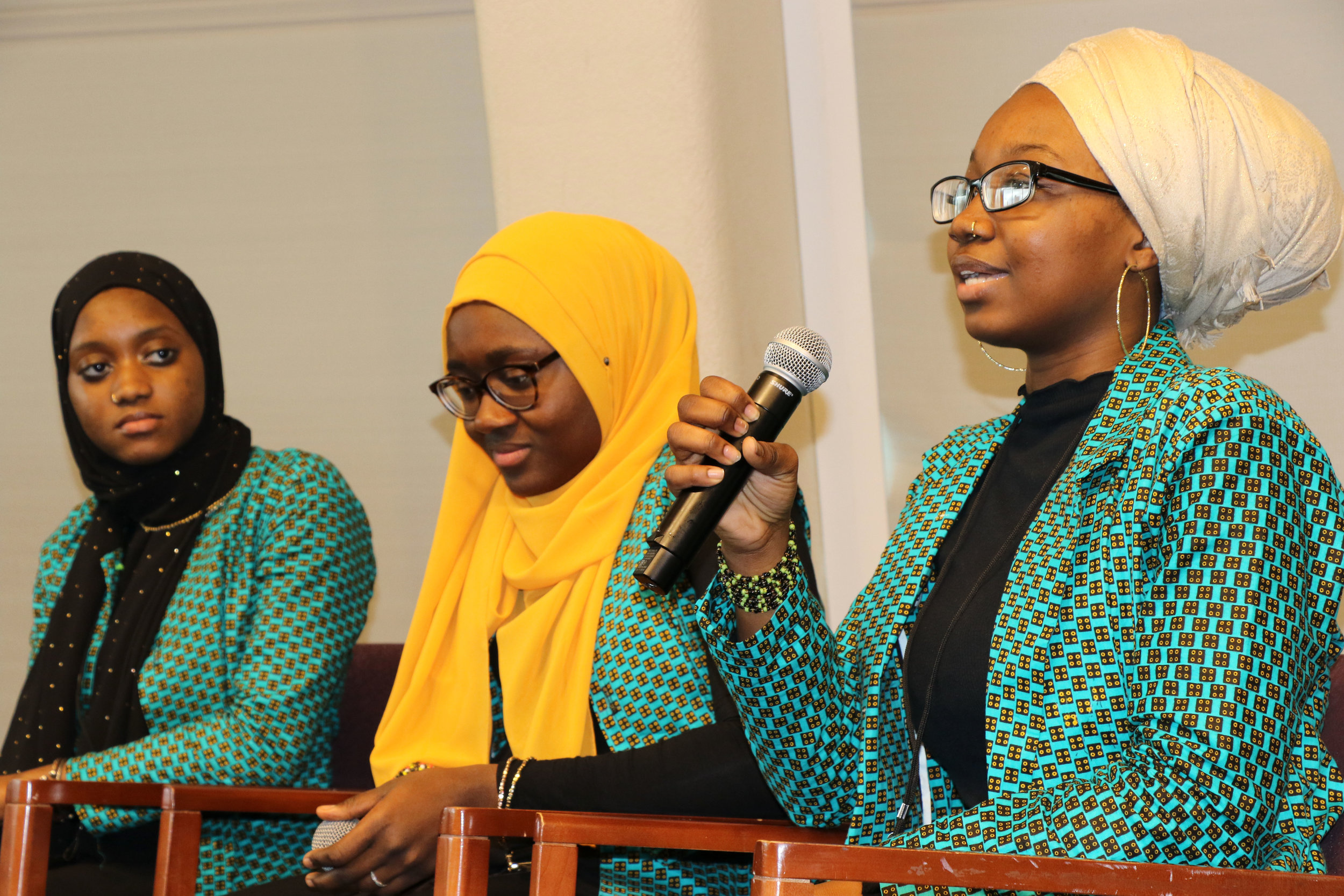1st Annual Black Muslim Symposium: History, Legacies, and Experiences




















Images of the event.
©NYU Africa House: Benjie Tetteh
Africa House was delighted to sponsor the NYU Black Muslim Initiative’s “1st Annual Black Muslim Symposium: History, Legacy, and Experiences” on April 27th, 2019
For centuries, Black Muslims have influenced the development of Islam in America through faith, activism, and solidarity. This conference highlighted the past and present contributions of Black Muslims to the greater Islamic faith. Breakout sessions covered emerging themes from gender norms in Islam to racism and mental health issues facing Black Muslims. The goal of the symposium was to illuminate the ways in which our communities have resisted these challenges and continue to thrive.
Speakers:
Imam Al-Hajj Talib Abdur-Rashid (Keynote Speaker) is the religious and spiritual leader (Imam( of The Mosque of Islamic Brotherhood Inc. Imam Abdur-Rashid is also the former Ameer (President) of the Majilis As-Shura (Islamics Leadership Council) of Metropolitan New York. Currently, he is its Special Assistant for Restorative Justice, Civil, and Human Rights. Nationally, the imam currently serves as the Ameer (President) of the Muslim Alliance in North America. Locally, he is the chairman of the Association of African American Imams, in New York City.
Jamillah Karim is an award-winning author, speaker, and blogger. She specializes in race, gender, and Islam in America. Jamillah is the author of Women of the Nation: Between Black Protest and Sunni Islam (with Dawn-Marie Gibson) and American Muslim Women: Negotiating Race, Class, and Gender Within the Ummah, which was awarded the 2008 Book Award in Social Sciences by the Association for Asian American Studies.
She is currently working on a new book, Radical Love, where she explores the depth and beauty of divine and human love.
Jamillah blogs for Sapelo Square, Hagar Lives, Race+Gender+Faith, NYU Press Blog, and Huffington Post Religion. She regularly speaks at college campuses and Muslim conferences across the nation. In 2014, her scholarly activism was recognized by JET magazine, which featured her as a young faith leader in the African American community.
She is a former associate professor in the Department of Religious Studies at Spelman College. She holds a BSE in electrical engineering and a Ph.D. in Islamic Studies from Duke University.
Ousmane Oumar Kane is a scholar of Islamic studies and comparative and Islamic politics, joined Harvard Divinity School in July 2012 as the first Prince Alwaleed Bin Talal Professor of Contemporary Islamic Religion and Society at HDS. Since 2002, he was an associate professor of international and public affairs at Columbia University’s School of International and Public Affairs.
He is a member of a number of professional organizations, including the African Studies Association of North America and the Council for the Development of Social and Economic Research in Africa. Kane studies the history of Islamic religious institutions and organizations since the eighteenth century, and he is engaged in documenting the intellectual history of Islam in Africa.
Kane has also focused on the phenomenon of Muslim globalization. His book Homeland Is the Arena: Religion, Transnationalism and the Integration of Senegalese Immigrants in America (Oxford University Press, 2010) looks at the community of Senegalese immigrants to the United States in New York and the importance these immigrants assign to their religious communities for the organization of their lives.
His other books include Muslim Modernity in Postcolonial Nigeria (Brill, 2003) and, most recently, Beyond Timbuktu: An Intellectual History of Muslim West Africa (Harvard University Press, 2016). He has published articles in the Harvard International Review, Politique étrangère, Afrique Contemporaine, African Journal of International Affairs, Cahiers d’Etudes Africaines, and Islam et Sociétés au Sud du Sahara.
Ifrah Magan is an expert in the intersections of race, gender, religion, and class in refugee resettlement and integration; access to health and mental health services amongst Muslim refugees; national and international immigration policies; community‐centered research models; international social work; and indigenous methodologies.
With over a decade of experience working in refugee and immigrant communities, Dr. Magan’s primary research focuses on the intersections of race, gender, religion, and class in refugee resettlement and integration. Her other research interests include access to health and mental health services amongst Muslim refugees, national and international immigration policies, community-centered research models, international social work, and indigenous methodologies.
As a qualitative researcher, Dr. Magan incorporates storytelling as a method of understanding the lived experiences of refugee and immigrant populations. Dr. Magan received a Bachelor of Science degree in Family and Community Services from Michigan State University where she was a Ronald E. McNair Scholar. She then went on to receive a Masters degree from the University of Chicago’s School of Social Service Administration where she was a recipient of many awards including the Kathryn Davis Peace Award and served as a Child Advocate for unaccompanied undocumented children through the Young Center at University of Chicago School of Law. She received her doctorate degree from the University of Illinois at Chicago, Jane Addams College of Social Work where she was a recipient of the Abraham Lincoln Fellowship and the Dr. Martin Luther King, Jr. Service Award. Her doctoral dissertation explored the migration paths of Somali refugees in Chicago, and in particular, how ethnic and religious identities impact (if at all) their resettlement and integration.
In addition to her academic work, Dr. Magan is deeply inspired by the rich poetic tradition of her Somali culture and is currently working on her first poetry collection.